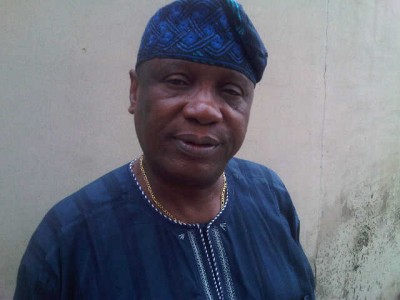
THERE is a hardly a day that goes by that we don’t read in the media of billions of naira being stolen by an agency in the central government. The whole thing is sickening. The rate at which money is being stolen in the central government has become like a curse. It is as if there is a competition among top government officials on how much you could steal.
The main reason is that there is too much money in the centre and there is lack of coordination. Someone even suggested that we don’t have any leader in the centre. In an ideal situation it should not be tolerated.
I think the time is ripe now to ask how come the central government has so much money while the states and the local governments are on financial ventilator. The last time we examined the formula for revenue allocation was in 1980. And the report was never implemented till today.
The military came in 1984 and bungled everything. The present revenue allocation formula favours the centre because it was produced by the military. And as we are aware the military prefers a central command structure.
In spite of the extravagant life style of governors, judging by the number of the expensive Lexus and Toyota CRV cars in their convoys, the states are dying for lack of funds. Notwithstanding the Local Government Reform Committee set-up on June 17, 2003 and headed by Etsu Nupe, Alhaji Umaru Sanda Ndayako as the Chairman with Alhaji Liman Chiroma (North East), Barrister John Ochoga (North Central),
Professor Godwin Odenigwe (South East), Mr. Augustine Udoh-Ekong (South South), Professor Akin Mabogunje (South West), Senator Tunde Ogbeha (Senate), Hon. Austin Okpara (House of Representatives), Mrs. Abieyuwa Garba (representing Women), Mr. Venatius Ikem (Youth) and Alhaji I.B. Sali as the Secretary of the committee, the local government system today in Nigeria is more or less dead.
Yet the centre keeps on spending money like drunken sailors. The rural areas have been abandoned and neglected. The other day the Vice President, Yemi Osinbajo, GCON, cried out that the cost of governance has become too high.
To me that is an understatement. The cost of running government in Nigeria is killing Nigeria. And a docile society like ours tolerates it. It looks as if we have surrendered. We should ask ourselves why the central government has become so mighty. The major reason is the issue of revenue allocation.
In 1980, President Usman Aliyu Shehu Shagari, GCFR, attempted to address the issue of revenue allocation. On November 21, 1979, he set up the Presidential Commission on Revenue Allocation. The Commission was headed by Chief Pius Okigbo. Other members of the commission were Uman Bello, Garrick B. Leton, Ahmed Talib, Balarabe Ismaila, Adedotun O. Phillips and W. Okeife Uzoaga.
Mr Ambrose Feese of the New Nigeria Development Company Limited in Kaduna was the secretary. Messrs C.C. Chukwurah, I. O. Dada, F.D.O. Enwefah, A.O. Gaber and Tunji Olutola from the Federal Public Service and Mrs. M.N. David-Osuagwu from the Public Service of Anambra State formed part of the secretariat of the commission. The Commission toured the then 19 states of the federation and later submitted his reports to President Shehu Shagari on June 30, 1980.
One hundred and thirteen individuals submitted memoranda to the commission while 48 associations, institutions and professional bodies equally submitted memoranda to the commission. Among those who submitted memoranda were Chief Simeon Adebo, Governor Aper Aku of Benue State, Professor Sam Aluko, Mr. Akin Fadahunsi, Chief D.E. Okumagba, Senator Kunle Oyero, Dr. Ibrahim Tahir,
Dr. A.B. Yusuf, Mr. R.O. Nwabueze, Mr. Fola Omidiji, Dr. E.J. Nwosu, Mr. Bisi Morafa, Dr. Dele Olowu, Chief N.A. Frank Opigo, Chief E.E. Jacob Duke, Chief A.A. Ani, Chief E.K. Clark, Mr. B. Briggs, Chief S. O. Asabia, Mr. Victor Salami, Mr. M. Prest, etc. All the 19 states then submitted their memoranda to the commission. But let us look at the various revenue commissions that we have had till date.
In political as well as fiscal terms, Nigeria operated a unitary form of government between 1914 and 1946. There was, therefore, no need for any system of revenue sharing. The impending constitutional change to be introduced in 1946 by the Richards Constitution created the need to formulate proposals to enable the newly created Regions:
North, West and East, to carry their new responsibilities. The new Constitution gave to the Regions some measure not autonomy but of administrative authority and responsibility, but left the supreme fiscal powers squarely with the central government.
It was therefore necessary to make available to the Regions revenues to enable them to undertake their new functions. The Phillipson Commission was to formulate the administrative and financial procedures to be adopted under the Constitution.
The Commission divided regional revenues into two classes: “declared” and “non-declared” revenues. “Declared” revenues were those locally collected by the regional authorities: direct taxes (personal income), licences, fees, income from property, mining rents, etc.
These formed the core of what were later restyled independent revenues. “Non-declared” revenues were those collected by the central government. Since Nigeria operated a unitary government, it was the central government that determined what portion of the “non-declared” revenues was to be shared each year among the Regions.
In the event, during the four years of the Phillipson scheme (1948-1952), the proportion of centrally collected revenues shared among the Regions remained under one fifth.
For the share of the regions out of the non-declared revenues, Phillipson considered three principles: derivation, even progress and population.
END

Be the first to comment